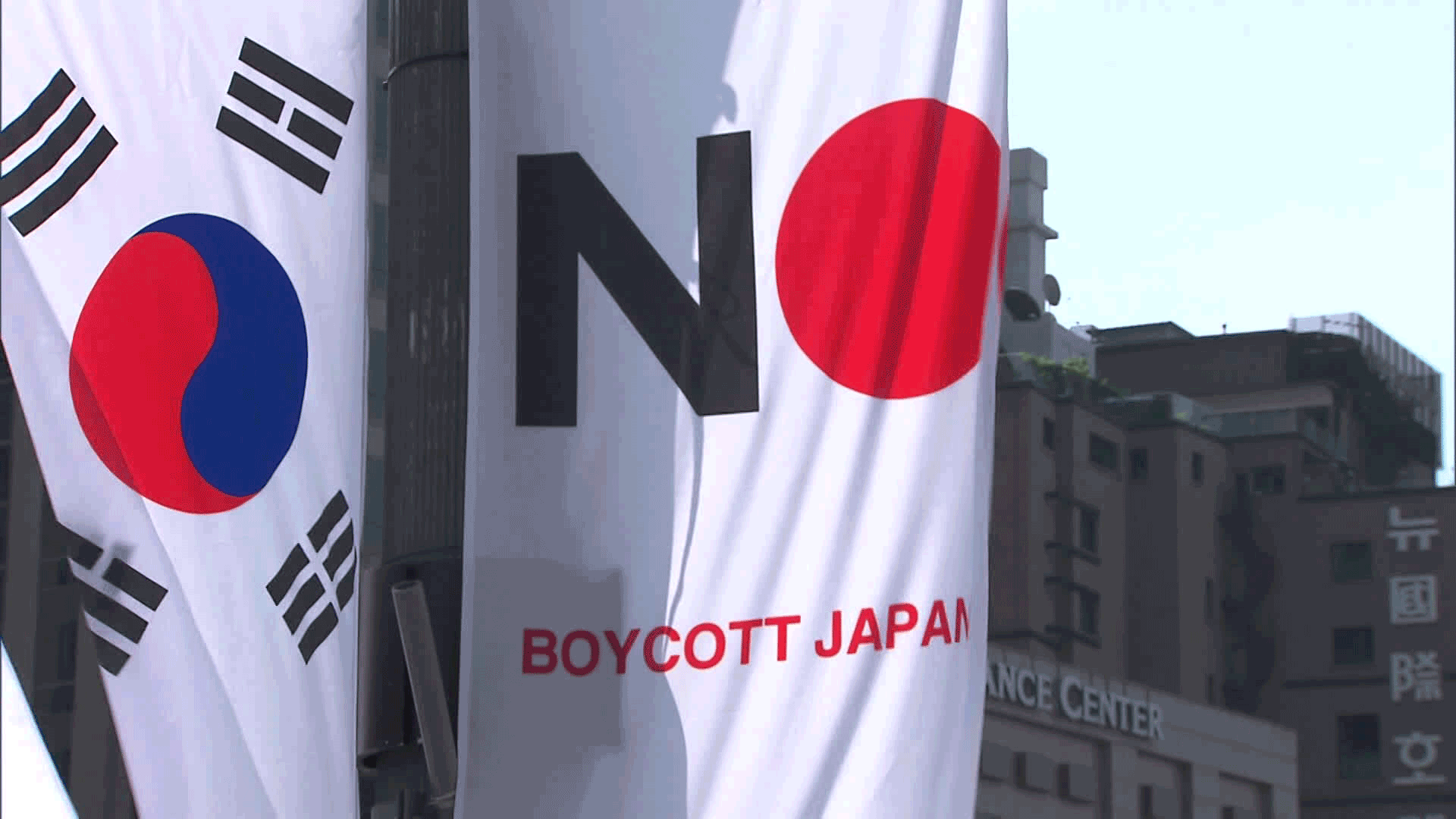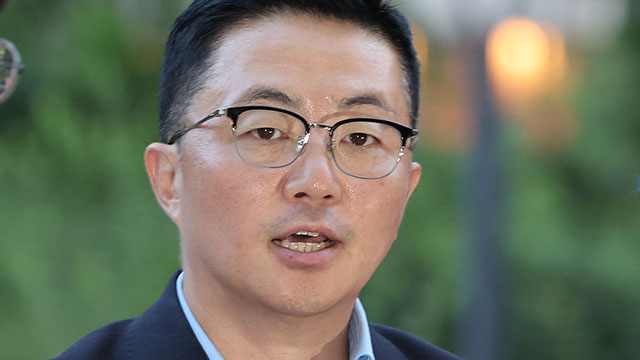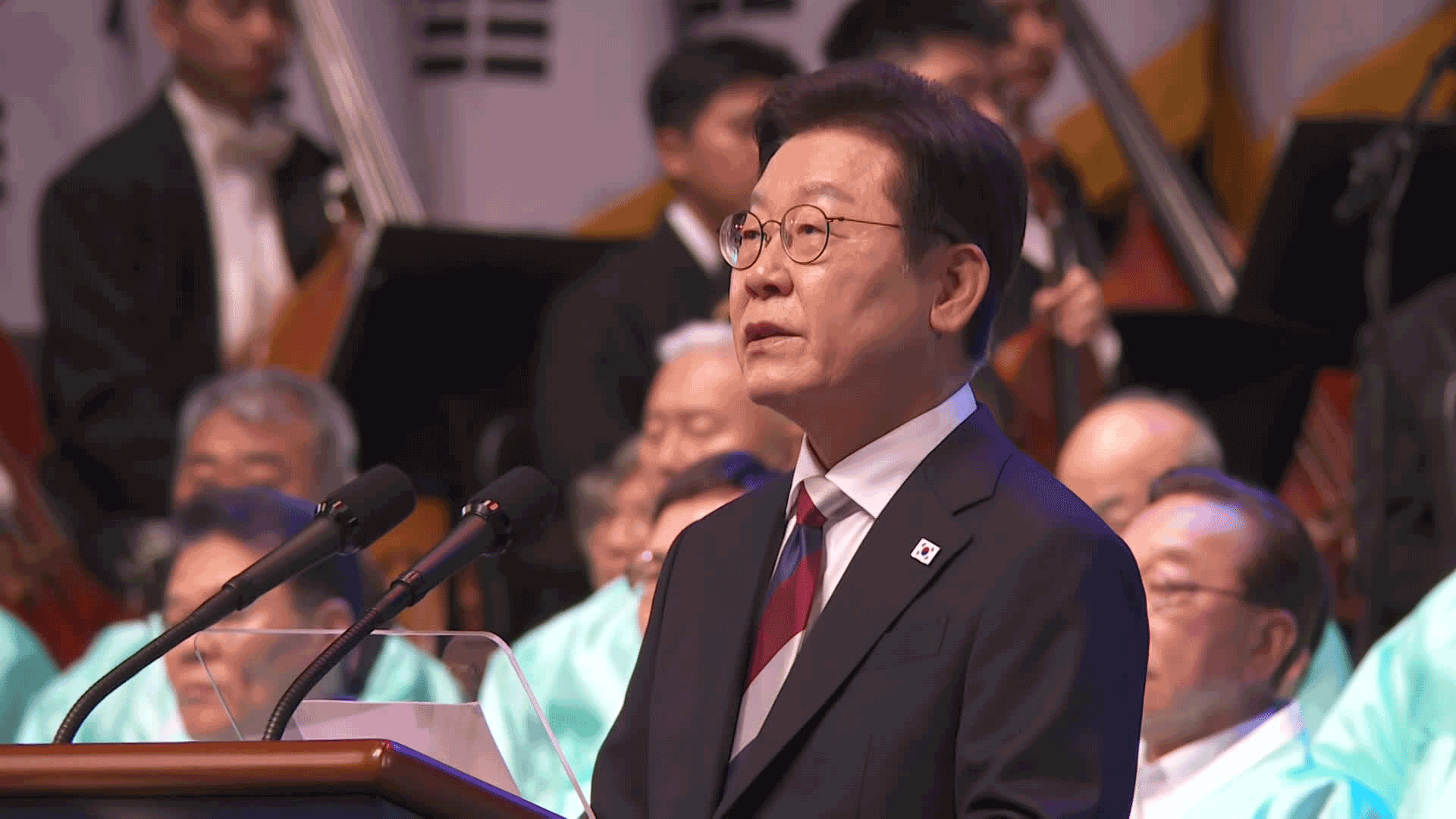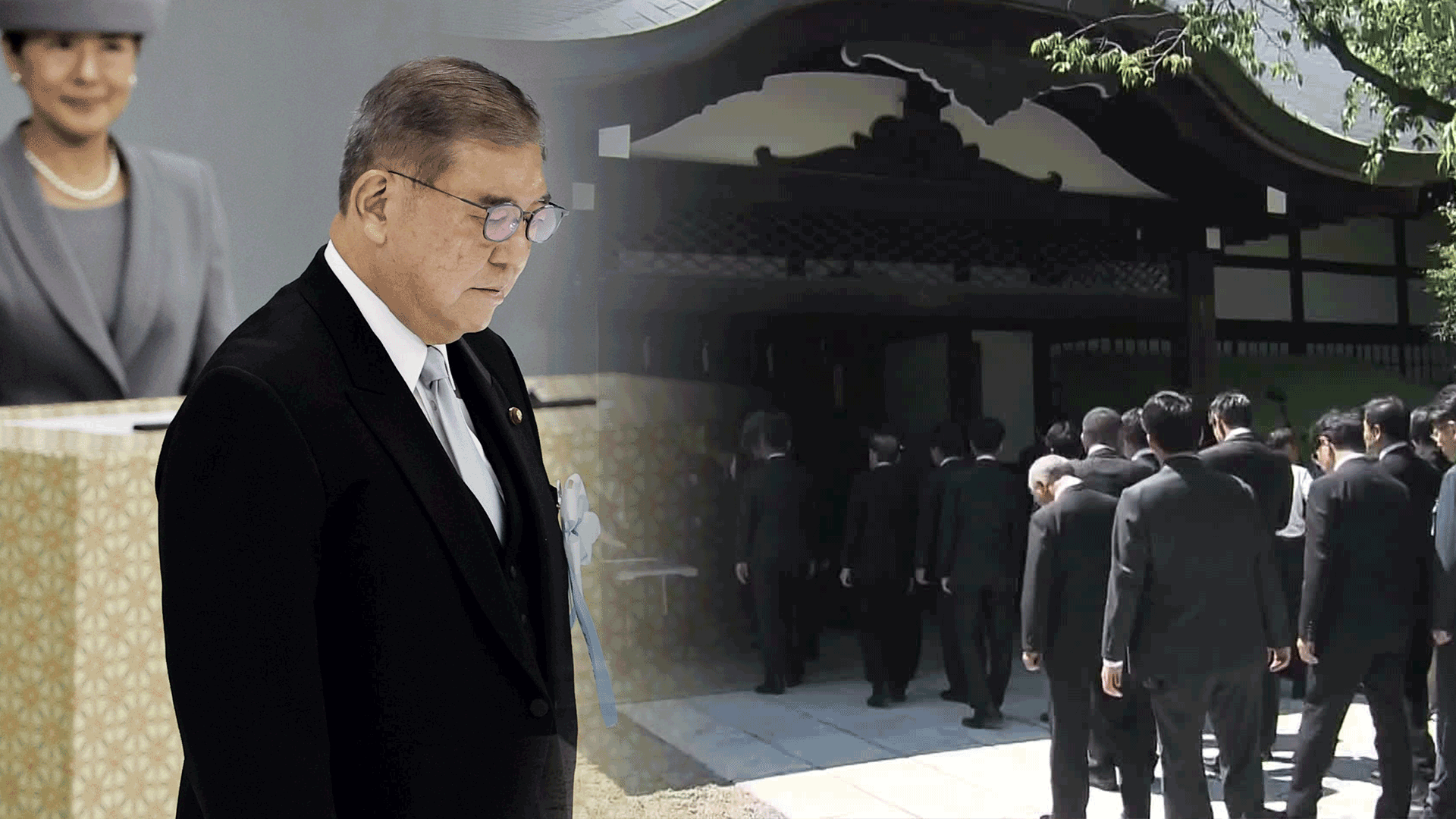[Anchor]
This year marks the 80th anniversary of liberation and the 60th anniversary of diplomatic relations between Korea and Japan.
We have risen to become one of the top 10 countries in the world, continuing exchanges and cooperation with Japan on an equal footing.
Reporter Song Geum-han reports on the ups and downs of Korea-Japan relations that have endured through various challenges.
[Report]
In 1945, the 35-year colonial rule ended, but the building of the Governor-General of Chosun was not demolished until 50 years later.
Amid the deep scars of history that have remained for so long, the relationship between the two countries has experienced many fluctuations.
The severed diplomatic relations were restored in 1965 with the signing of the Treaty on Basic Relations between Japan and the Republic of Korea.
The acknowledgment of the comfort women issue in the 1990s, along with the Kono Statement that included apologies and reflections, and the Kim Dae-jung-Obuchi Declaration, which first explicitly stated Japan's official apology in writing, are regarded as historical milestones.
[Kim Dae-jung/then President/Oct. 1998: "We have agreed to overcome the unfortunate history and develop a future-oriented relationship towards the 21st century."]
The successful hosting of the Korea-Japan World Cup in 2002 was overshadowed by repeated conflicts over historical issues and Japan's claims to sovereignty over Dokdo.
In 2018, when Japan retaliated against a Supreme Court ruling on compensation for forced labor victims with export restrictions, the 'NO Japan' movement spread, reaching a peak in tensions.
After decades of conflict and reconciliation, we have now risen to an equal position with Japan economically and militarily.
Having transitioned from receiving aid as a developing country to becoming a donor country, our nominal GDP per capita surpassed Japan's for the first time in 2022.
In response to the threat from North Korea, our military power has grown to rank among the world's top five, and we are no longer overshadowed by Japan, which is still regarded as a military power despite the constraints of its constitution.
As the competition between the U.S. and China becomes more pronounced, the U.S. considers us and Japan as its most important allies, emphasizing cooperation between the two countries.
[Kang Chang-il/former Ambassador to Japan: "We need to hold hands to ensure that we can achieve a win-win situation with Japan from an equal position."]
Currently, Japan is the only G7 member in Asia, but we are also aiming to realize 'G7 Plus' as a diplomatic power based on our elevated status.
This is KBS News, Song Geum-han reporting.
This year marks the 80th anniversary of liberation and the 60th anniversary of diplomatic relations between Korea and Japan.
We have risen to become one of the top 10 countries in the world, continuing exchanges and cooperation with Japan on an equal footing.
Reporter Song Geum-han reports on the ups and downs of Korea-Japan relations that have endured through various challenges.
[Report]
In 1945, the 35-year colonial rule ended, but the building of the Governor-General of Chosun was not demolished until 50 years later.
Amid the deep scars of history that have remained for so long, the relationship between the two countries has experienced many fluctuations.
The severed diplomatic relations were restored in 1965 with the signing of the Treaty on Basic Relations between Japan and the Republic of Korea.
The acknowledgment of the comfort women issue in the 1990s, along with the Kono Statement that included apologies and reflections, and the Kim Dae-jung-Obuchi Declaration, which first explicitly stated Japan's official apology in writing, are regarded as historical milestones.
[Kim Dae-jung/then President/Oct. 1998: "We have agreed to overcome the unfortunate history and develop a future-oriented relationship towards the 21st century."]
The successful hosting of the Korea-Japan World Cup in 2002 was overshadowed by repeated conflicts over historical issues and Japan's claims to sovereignty over Dokdo.
In 2018, when Japan retaliated against a Supreme Court ruling on compensation for forced labor victims with export restrictions, the 'NO Japan' movement spread, reaching a peak in tensions.
After decades of conflict and reconciliation, we have now risen to an equal position with Japan economically and militarily.
Having transitioned from receiving aid as a developing country to becoming a donor country, our nominal GDP per capita surpassed Japan's for the first time in 2022.
In response to the threat from North Korea, our military power has grown to rank among the world's top five, and we are no longer overshadowed by Japan, which is still regarded as a military power despite the constraints of its constitution.
As the competition between the U.S. and China becomes more pronounced, the U.S. considers us and Japan as its most important allies, emphasizing cooperation between the two countries.
[Kang Chang-il/former Ambassador to Japan: "We need to hold hands to ensure that we can achieve a win-win situation with Japan from an equal position."]
Currently, Japan is the only G7 member in Asia, but we are also aiming to realize 'G7 Plus' as a diplomatic power based on our elevated status.
This is KBS News, Song Geum-han reporting.
■ 제보하기
▷ 카카오톡 : 'KBS제보' 검색, 채널 추가
▷ 전화 : 02-781-1234, 4444
▷ 이메일 : kbs1234@kbs.co.kr
▷ 유튜브, 네이버, 카카오에서도 KBS뉴스를 구독해주세요!
- Korea-Japan: Ups and downs
-
- 입력 2025-08-16 00:42:37

[Anchor]
This year marks the 80th anniversary of liberation and the 60th anniversary of diplomatic relations between Korea and Japan.
We have risen to become one of the top 10 countries in the world, continuing exchanges and cooperation with Japan on an equal footing.
Reporter Song Geum-han reports on the ups and downs of Korea-Japan relations that have endured through various challenges.
[Report]
In 1945, the 35-year colonial rule ended, but the building of the Governor-General of Chosun was not demolished until 50 years later.
Amid the deep scars of history that have remained for so long, the relationship between the two countries has experienced many fluctuations.
The severed diplomatic relations were restored in 1965 with the signing of the Treaty on Basic Relations between Japan and the Republic of Korea.
The acknowledgment of the comfort women issue in the 1990s, along with the Kono Statement that included apologies and reflections, and the Kim Dae-jung-Obuchi Declaration, which first explicitly stated Japan's official apology in writing, are regarded as historical milestones.
[Kim Dae-jung/then President/Oct. 1998: "We have agreed to overcome the unfortunate history and develop a future-oriented relationship towards the 21st century."]
The successful hosting of the Korea-Japan World Cup in 2002 was overshadowed by repeated conflicts over historical issues and Japan's claims to sovereignty over Dokdo.
In 2018, when Japan retaliated against a Supreme Court ruling on compensation for forced labor victims with export restrictions, the 'NO Japan' movement spread, reaching a peak in tensions.
After decades of conflict and reconciliation, we have now risen to an equal position with Japan economically and militarily.
Having transitioned from receiving aid as a developing country to becoming a donor country, our nominal GDP per capita surpassed Japan's for the first time in 2022.
In response to the threat from North Korea, our military power has grown to rank among the world's top five, and we are no longer overshadowed by Japan, which is still regarded as a military power despite the constraints of its constitution.
As the competition between the U.S. and China becomes more pronounced, the U.S. considers us and Japan as its most important allies, emphasizing cooperation between the two countries.
[Kang Chang-il/former Ambassador to Japan: "We need to hold hands to ensure that we can achieve a win-win situation with Japan from an equal position."]
Currently, Japan is the only G7 member in Asia, but we are also aiming to realize 'G7 Plus' as a diplomatic power based on our elevated status.
This is KBS News, Song Geum-han reporting.
This year marks the 80th anniversary of liberation and the 60th anniversary of diplomatic relations between Korea and Japan.
We have risen to become one of the top 10 countries in the world, continuing exchanges and cooperation with Japan on an equal footing.
Reporter Song Geum-han reports on the ups and downs of Korea-Japan relations that have endured through various challenges.
[Report]
In 1945, the 35-year colonial rule ended, but the building of the Governor-General of Chosun was not demolished until 50 years later.
Amid the deep scars of history that have remained for so long, the relationship between the two countries has experienced many fluctuations.
The severed diplomatic relations were restored in 1965 with the signing of the Treaty on Basic Relations between Japan and the Republic of Korea.
The acknowledgment of the comfort women issue in the 1990s, along with the Kono Statement that included apologies and reflections, and the Kim Dae-jung-Obuchi Declaration, which first explicitly stated Japan's official apology in writing, are regarded as historical milestones.
[Kim Dae-jung/then President/Oct. 1998: "We have agreed to overcome the unfortunate history and develop a future-oriented relationship towards the 21st century."]
The successful hosting of the Korea-Japan World Cup in 2002 was overshadowed by repeated conflicts over historical issues and Japan's claims to sovereignty over Dokdo.
In 2018, when Japan retaliated against a Supreme Court ruling on compensation for forced labor victims with export restrictions, the 'NO Japan' movement spread, reaching a peak in tensions.
After decades of conflict and reconciliation, we have now risen to an equal position with Japan economically and militarily.
Having transitioned from receiving aid as a developing country to becoming a donor country, our nominal GDP per capita surpassed Japan's for the first time in 2022.
In response to the threat from North Korea, our military power has grown to rank among the world's top five, and we are no longer overshadowed by Japan, which is still regarded as a military power despite the constraints of its constitution.
As the competition between the U.S. and China becomes more pronounced, the U.S. considers us and Japan as its most important allies, emphasizing cooperation between the two countries.
[Kang Chang-il/former Ambassador to Japan: "We need to hold hands to ensure that we can achieve a win-win situation with Japan from an equal position."]
Currently, Japan is the only G7 member in Asia, but we are also aiming to realize 'G7 Plus' as a diplomatic power based on our elevated status.
This is KBS News, Song Geum-han reporting.
-
-

송금한 기자 email@kbs.co.kr
송금한 기자의 기사 모음
-
이 기사가 좋으셨다면
-
좋아요
0
-
응원해요
0
-
후속 원해요
0











![[한일여론조사] “일본에 호감” 52%…“과거사 반성 부족” 80%](/data/layer/904/2025/08/20250815_4pdsE0.png)



이 기사에 대한 의견을 남겨주세요.